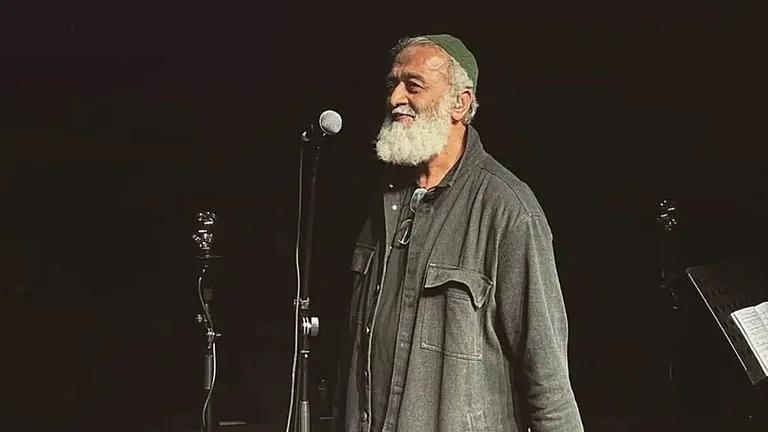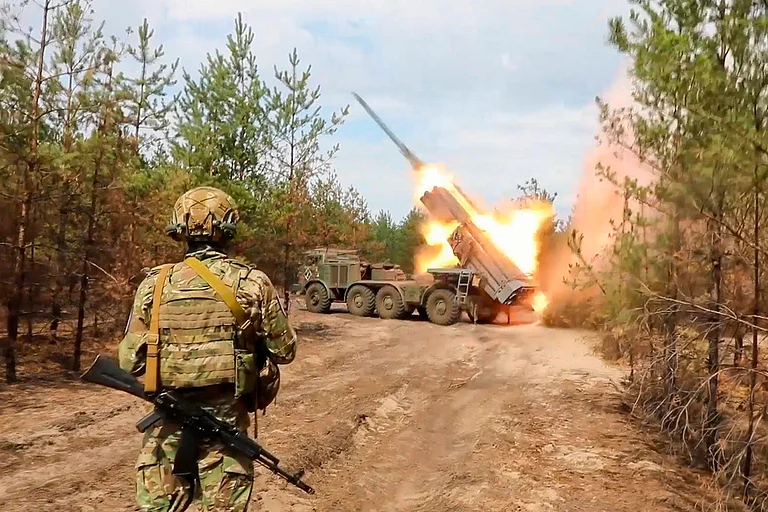Prime Minister Atal Behari Vajpayees trip to the US may have generated heat in India but in the US, particularly on the first leg of his tour to belatedly address the UNs special millennium summit, theres a more realistic appreciation of the trip.
Clouded by problems of health, Vajpayees visit has been relatively low-key with some prominent US think-tanks saying that the timing of the trip could have been better. "At the UN summit, where there are several heads of government delivering their pieces, even if the Queen of England came, it would be a no-show," noted South Asian expert Stephen Cohen told Outlook.
Cohen believes outgoing President Bill Clintons initiatives on South Asia have been good so far, but thinks it is difficult to predict the future. This is because the presidential hopefuls are an unknown proposition as far as foreign policy - and definitely South Asia - is concerned. "Though Republicans have traditionally had a greater role in global relations, George Bushs worldview is an unknown quantity. As for Al Gore, he could get far too involved in environmental issues, leaving the South Asian problems totally out in the cold," argues Cohen. Clintons initiatives, and Vajpayees reciprocation, says Cohen, have came too late in his presidency to actually bear fruit.
Others like Chris Gagne of the Henry L. Simpson Center say that though there is a lot of interest in an Indo-US dialogue - particularly among the security community here - this is perhaps not the appropriate moment for visiting America. "A lot of factors have complicated the situation. The bulk of local attention is currently focused on the upcoming American elections, which has lessened the importance of initiatives taken by the Clinton administration on India and South Asia and Indian responses subsequently," Gagne says. Of course, the situation could be greatly redeemed if the Indians could offer something substantial, like new and lucrative business openings to the vast telecom sector. But Gagne isnt too optimistic about anything dramatic emerging from the prime ministers trip.
Yet, some US think-tanks are looking afresh at the stereotyped images of India. A statement issued by researcher and India expert Victor Gobar at Washingtons Cato Institute said that for far too long the US saw India as a Third World, poverty-stricken giant. "India has a nuclear arsenal, a large military budget, a sophisticated space programme and a booming hi-tech sector. How India uses its powers can either enhance or undermine US interests."
Meanwhile, Vajpayee himself took the 13,327 km trip between Delhi and New York quite stoically with a four-hour halt at Zurich, where he checked into a hotel close to the airport. Just before the 160-strong Indian entourage accompanying Vajpayee left Zurich, the prime minister told journalists travelling with him that he was feeling well. There were anxious queries on whether the prime minister would deliver his UN address sitting down.
His UN speech was reworked, reportedly by the permanent Indian representative to the UN, Kamlesh Sharma. This became necessary because of Gen Pervez Musharrafs speech a day earlier, in which he demanded that the international community force an East Timor-like referendum in Kashmir. Even in the rephrased text, Vajpayee chose not to respond directly to Pakistan or even refer to it by name.
Sample this, for instance: "Many statesman-like speeches have been delivered from this high tribune. Unfortunately, some of them are Orwellian mockery. Those who have stifled democracy at home speak of freedom from this forum. Those who have engaged in clandestine acquisition of nuclear weapons and delivery systems talk of ridding South Asia of these. The authors of a vicious terrorist campaign that has claimed more than 30,000 innocent lives in India, who actively sabotaged a historic peace initiative, are now offering new initiatives for dialogue."
Though national security advisor Brajesh Mishra told journalists India wasnt interested in raising the Kashmir issue other than "tangentially" in the context of bilateral relations, there were indications India would have to press the accelerator as far as Kashmir was concerned. For instance, Jason Forrester, of the prestigious Brookings Institute, who too believes that the timing of the trip is odd, says, "There are critical issues in that area: nuclear weapons and Kashmir as a potential flashpoint need to be restrained."
Some evidence of Indias keenness to address the Kashmir issue came during Vajpayees rather slurred speech at the Asia Society in New York where he was honoured hours after his arrival. There the prime minister argued, "In the spring of last year, I travelled to Lahore in search of a new quality of relations in the subcontinent and a new age of regional cooperation. The rulers of Pakistan responded through Kargil in the summer of 1999. The history of that episode is well known. Pakistan suffered a military and diplomatic defeat. But instead of heeding international opinion, instead of responding to our offer to normalise relations, Pakistan responded by removing the last vestiges of democracy. They have provided a convenient cloak to disguise the aggression on our civil society - the cloak of jehad."
The PM also appealed to the American intellectuals at the Asia Society felicitation ceremony to make this distinction between the two countries - that Pakistan supports terrorism - as a starting point for building strong Indo-US bilateral relations. In New York, too, the visiting Indian dignitaries and senior officials are keen to initiate resolutions against terrorism, some say not unnaturally, given that Pakistan under Musharraf has created a war-like situation in Kashmir, a situation not so alarming during the days of deposed prime minister Nawaz Sharif.
In fact, Sharma pointed out that concerted action against international terrorism had been fittingly included in the UNs first millennium conference. He said much of Indias ideas were included in the agenda for the meet. He cited UN secretary general Kofi Annans speech as a major gain, for the latter said there should be no differentiation between countries who own nuclear weapon - irrespective of whether they were rich or poor.
Clearly, the pitch is set. Even as the Indian delegation comprising top diplomats led by external affairs minister Jaswant Singh go through the various sessions at the UN, action against international terrorism remains its leitmotif. Add to it economic cooperation - and thats going to be the high mark of Vajpayees visit to the US.

























